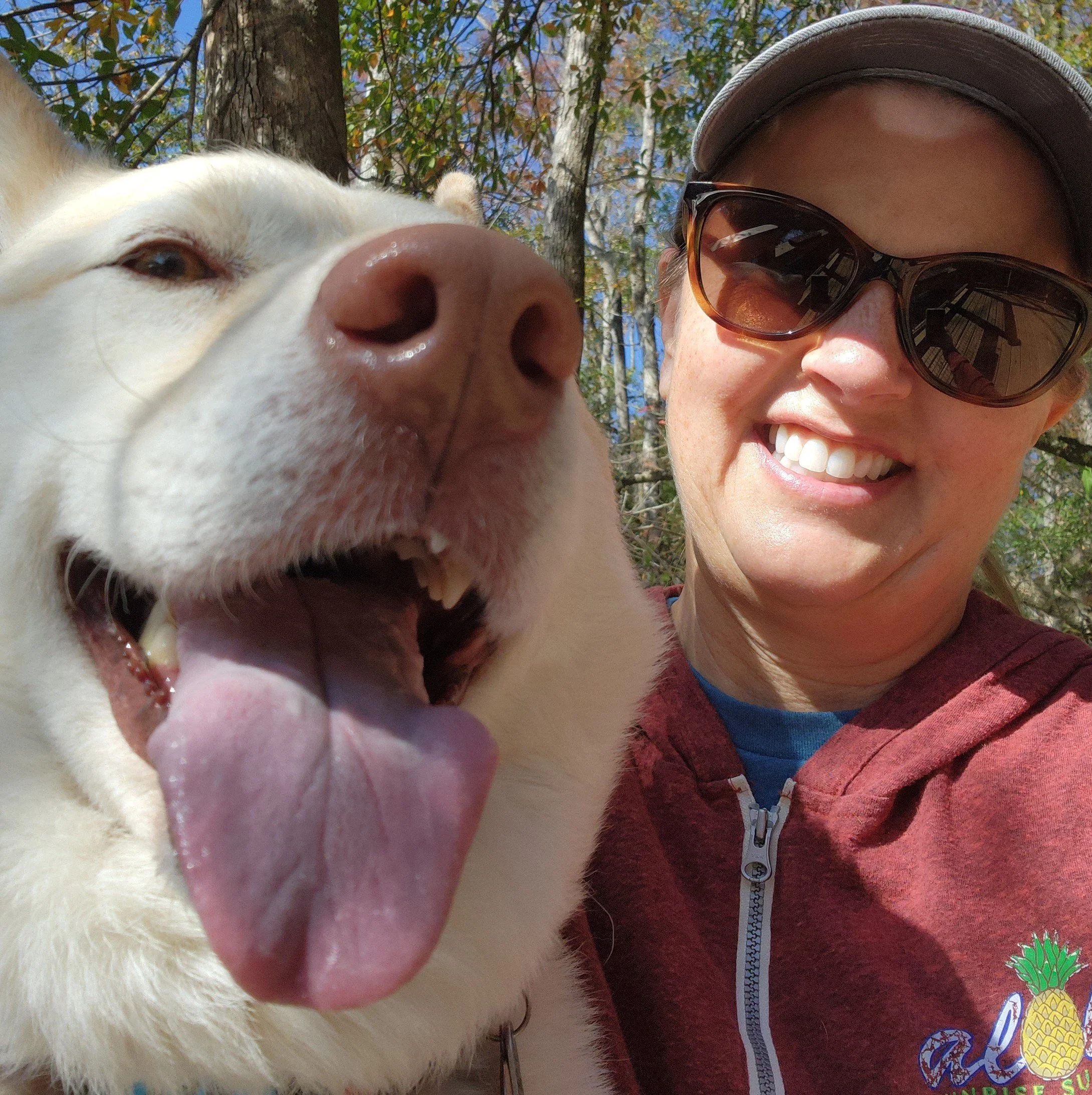COVID-19 and Pets: What you need to know.
Hug your pet, wash your hands, repeat
With most of the country in self-quarantine and a bit of insecurity creeping in, What’s Pawsitive would like to remind you how our companion animals can keep us company and help us through this unique situation. For some of us, having pets may be what keeps us sane. Also, we should not forget the thousands of animals in shelters and the people taking care of them during this difficult time. Shelters across the country are making necessary changes to protect the animals, themselves, and us. Here’s what you need to know about the virus and pets and ways to help.
Separating myths from facts
Animal shelters are struggling, just like other small businesses. Photo by Carrie Dow.
Both The Centers for Disease Control (CDC) and The World Health Organization (WHO) have determined that household pets – our beloved dogs and cats – cannot get or transfer COVID-19 AKA Coronavirus.
The following is from the CDC:
"While this virus seems to have emerged from an animal source, it is now spreading from person-to-person in China. There is no reason to think that any animals including pets in the United States might be a source of infection with this new coronavirus. To date, CDC has not received any reports of pets or other animals becoming sick with COVID-19. At this time, there is no evidence that companion animals including pets can spread COVID-19. However, since animals can spread other diseases to people, it’s always a good idea to wash your hands after being around animals.”
Do you need a hug? Ok, but then wash your hands. Photo by Carrie Dow.
If you are sick, the CDC warns, "You should restrict contact with pets and other animals while you are sick with COVID-19, just like you would around other people. Although there have not been reports of pets or other animals becoming sick with COVID-19, it is still recommended that people sick with COVID-19 limit contact with animals until more information is known about the virus. When possible, have another member of your household care for your animals while you are sick. If you are sick with COVID-19, avoid contact with your pet, including petting, snuggling, being kissed or licked, and sharing food. If you must care for your pet or be around animals while you are sick, wash your hands before and after you interact with pets and wear a facemask."
This is a great reminder we should always practice safe hygiene when interacting with our pets or meeting other people’s pets. Always wash your hands after petting or handling your pet and other pets. Hand washing is the best way to prevent a variety of illnesses including COVID-19 and something we should all be doing anyway.
With everyone practicing social distancing, something we are doing in our neighborhood, and has been reported in other places across the country, is when walking our dogs, we keep a safe distance from others. We often cross the street when we see others walking toward us, but still say hello as we pass. Just because we’re distancing doesn’t mean we can’t be friendly. Again something simple that keeps everyone safe.
Finally let’s take care of our friends, family, and neighbors and offer to walk the dogs of older residents and other people who can’t leave their homes. It’s the neighborly thing to do.
Now might be a good time to adopt a pet. Is it right for you? Photo by Carrie Dow.
Are you prepared?
Hopefully you were able to get to the store and stock up everything you need before being stuck at home. This includes our pets. Make sure you have extra of any medications they need. Make sure they have plenty of food and treats. Pet parents should also check with their local animal clinic or veterinarian to see if they have reduced hours or staff so you know what to do and where to go if you have a pet emergency.
What are animal shelters doing?
Shelters are struggling just like any other business due to having non-essential staff working from home, however, they are doing everything necessary to help the animals in their care. Most shelters across the country have closed to the public and no longer handling adoptions, but still offering life-saving services, like taking in stray animals and reuniting lost pets with owners. Shelters that offer medical services are still handling emergencies, but shutting down non-emergency services such as vaccine clinics and spay/neuter surgeries.
If you are someone or know someone who needs help with a pet or can’t leave home or afford to feed or get medications for a pet, local animal shelters can still help. Call first and let them know what you need. Most shelters are open by appointment only to keep the number of people inside the building to a minimum. However, anyone that needs shelter services such as veterinary care or pet food should still be able to get those services.
Is now the time to adopt? Maybe…
Perhaps– and this is an option that needs careful consideration before acting on – now is the time to adopt a new pet. Staying at home the next few weeks means you and your kids may finally have the time to devote to a new pet. However, there are many things to consider before doing so.
Shelters across the country are reacting to the COVID-19 while still maintaining essential services. Photo by Carrie Dow.
Why is this a good time? Bringing in a new family member can be the spark that helps you and your family get through these difficult times by providing a companion, a friend, and even something to focus your attention on besides all the bad news. You are also helping the shelter by making room for other animals. If you are working from home, you’ll be spending all day with the new pet and without your daily commute have extra time to socialize, train, and get to know your pet. Your new pet will have time to get to know you. Your kids are probably home from school and will be able to bond and play with a new pet as well as learn new skills in caring for that pet.
Before running out to your local shelter to adopt, do your homework. First and foremost don’t go anywhere if you or someone in your house is sick. Next, make sure the shelter you want to visit is open and offering adoptions. You will likely have to make an appointment. The good thing about this is you may have the shelter all to yourself and the pick of any pet you like.
Pumping the brakes
Since many of us have free time we weren’t expecting, we may want to volunteer at a shelter or foster animals. Unfortunately, that is not what shelters need right now. Like other businesses, shelters are trying to limit human contact and don’t want uninvited or unknown visitors during this time. Also, fostering animals, if you haven’t done it before, takes training and shelters can’t afford the time or the personnel to do that now. Shelters I have reviewed say the best thing people can do to help right now is donate money so they can continue to purchase all the necessary food, medicine, and cleaning supplies they need to care for the animals. In fact many organizations can use our dollars right now so carefully consider what organization or effort you wish to support – whether it’s people, animals, or services - and make a donation to that organization. Be patient and wait to volunteer when things improve. And things will improve. So give your pet a hug, wash your hands, and remember; we’re all in this together.
Note – The advice in this column is simply that, advice. It was gathered using reports from the CDC and ASPCA along with additional information from regional shelters covered by What’s Pawsitive. Every shelter and city will have different rules and protocols so always check websites or call to get the most up-to-date information for your area. These rules are changing daily as well. Animal adoption should never be taken lightly as caring for a living creature is a major responsibility. Please consider what is best for your family before bringing home a pet.











